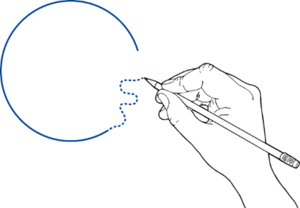Gender pay inequality is a persistent feature of economies around the world, but whether and how it can be eliminated is poorly understood. We examine whether one proposed intervention for reducing the pay gap, salary transparency, influences gender pay inequality in the context of universities in Canada. We exploit the passing of a salary disclosure policy in one province, which significantly lowered the cost of monitoring gender inequality in public organizations. We find that, on average, salary disclosure reduces gender pay inequality. However, institutions respond to mandatory salary disclosure in different ways. Those that anticipate higher scrutiny ‒ top ranked institutions and those that faced higher historic gender inequality ‒ are more likely to improve their gender pay gap, despite facing low public scrutiny in the periods immediately after the policy. They do so by increasing female salary and decreasing male salary relative to institutions in provinces without salary disclosure. In contrast, institutions that anticipate lower external scrutiny only increase female salary. Furthermore, we show these responses to address gender pay inequality negatively correlate with other organizational outcomes, such male faculty retention and grant productivity, and the size of these effects correspond to the differential response by top and non-top ranked institutions. Combined, these findings suggest that implementing salary transparency may lead to heterogeneous responses by organizations in how they reduce the gender gap, which may have unintended consequences on other organizational outcomes.
Ansprechpartnerin: Marina Chugunova

